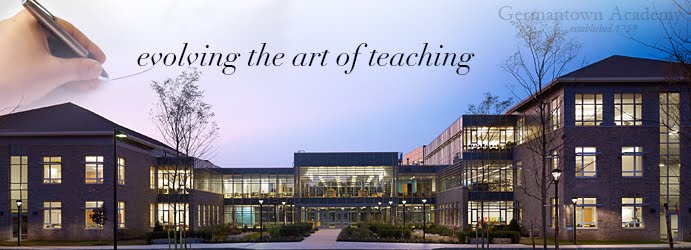As we embark on school-wide conversations about differentiated assessment and digital literacy and citizenship, the VLE can provide an organic, subject-specific way to put those initiatives into practice.
In several of my upper level and AP classes, I have asked students to do research on a relevant topic. While I used to have to devote several class periods to monotonous Power Point presentations, I now ask students to develop VLE pages as a way to share the information they have found with their classmates. As students develop these pages, I ask them to keep their audience in mind. How much content would a reader want? How might the reader be visually engaged by the page? What is the optimum way to present/deliver content? In effect, students become web designers, but the VLE enables them to build pages without having to know how to code. As students develop their own multimodal texts, they think about the needs of a reader; thus, they develop both multimodal literacy and empathy at the same time. Here is a sample of a student page providing background information on Disney’s Snow White and the Seven Dwarfs, a text students analyze in Fairy Tales:
Because students are so comfortable in an online setting, they can also find ways to intersperse playful touches with the academic material. For instance, this page included a Buzzfeed quiz:
Because students developed these resources themselves, they were more invested in the research. Their classmates consumed the pages with pleasure, digesting more information than I could ever have hoped to deliver to them in a lecture on a similar topic. Because the pages allow for elegant and streamlined delivery of large amounts of material in a short time, they can be browsed at home or in class and still leave me with more class time than I used to have when students did research presentations.
I also used the VLE to create a digital assignment sheet for this project. Putting the assignment sheet in a “note” enabled me to embed a youtube tutorial right in the assignment sheet:
I have also used the VLE to teach students how to write responsible, informed online comments. In both Drag Identities and What Women Want, after students peruse a page of content on the VLE, I ask them to “comment” on what they read. For these comments, I find that the online discussion tool on the VLE is the most useful platform, because it allows students to start new threads of discussion, to post original responses, and to reply to their classmates’ comments, directly.
Here are a few sample comments from different threads on the “Intersectional Feminism” page:
In class, we talk explicitly about what makes a good comment and how to disagree with someone in a respectful, intelligent way, rather than devolving into the vitriol so often seen on public websites and social media. These online posts are a particularly excellent opportunity for quieter students to make their voices heard; the longer comment above was from a student who barely spoke aloud all semester!
As you can see, the VLE has revolutionized my teaching. At the same time, it has given me the gift of having additional time to sit with my students and talk about books.








